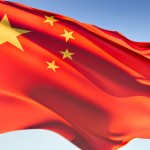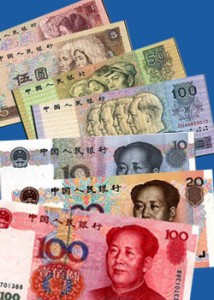 Floods Kill 1,072, 619 missing:
Floods Kill 1,072, 619 missing: Rain-triggered floods have left
1,072 people dead and 619 others missing this year in China.
The floods affected 140 million people in 28 provinces and regions and caused direct economic losses estimated at almost 210 billion yuan (almost $70 billion), said Shu Qingpeng, deputy director of the Office of State Flood Control and Drought Relief Headquarters.
The flooding also destroyed more than 1.1 million homes and damaged 9.72 million hectares of farmland. China's large rivers, including the Yangtze, the Yellow and the Songhua, were all swollen to danger levels after heavy rains inundated more than 160 cities across the country.
China Opposes Vietnam, US on South China Sea: China firmly opposes any remarks and actions that violate its sovereignty over
the Xisha Islands and adjacent waters in the South China Sea, said Foreign Ministry spokeswoman Jiang Yu on Friday.
Jiang made the comment after Vietnamese Foreign Ministry spokeswoman Nguyen Phuong Nga said, according to media reports, that Chinese vessels' seismic exploration activities near Xisha Islands had violated Vietnam's sovereignty.
"China has indisputable sovereignty over Xisha Islands and adjacent waters," Jiang reiterated in a news release.
Defense Ministry spokesman Geng Yansheng said China had
"indisputable sovereignty" over islands in the South China Sea and the surrounding waters, one week after US Secretary of State Hillary Clinton talked of US "national interests" in the area.
Geng said at a press conference that China would push for the resolution of differences regarding the South China Sea with "relevant countries" through dialogue and negotiations and that Beijing objected to having the issue internationalised.
China would respect the liberty of ships and aircraft from "relevant countries" traversing the South China Sea in accordance with international laws, Geng added.
China held
military drills in waters alongside US-South Korean exercises, leading to speculation that China had staged them intentionally to send a message to the US.
But Geng denied there was any connection, "The increased exposure of Chinese military exercises aims to showcase a more open, pragmatic and transparent Chinese military. I hope our friends in the media correctly analyze and understand the exercises and do not speculate or over-interpret them."
12,000 Take Part in Air Defence Drills: Chinese air defence forces on Thursday battled rain during
a five-day military exercise.
More than 12,000 Chinese military personnel, along with seven types of military aircraft, took part "Vanguard 2010", which started on Tuesday in seven cities across Henan and Shandong Provinces.
Reports said the annual drill, consisting of two phases to run from Tuesday to Saturday, would feature emergency evacuations, war planning, reconnaissance, early warning activities, ground-to-air attacks, and evacuations of command posts during its first phase which ends on Thursday.
Its second phase includes testing Chinese air defense troops' abilities in fighting air units in a "complicated electromagnetic environment".
China to enhance army's capabilities: China's armed forces will continue to
enhance their capabilities and military readiness to safeguard sovereignty, security, and development of the nation, Defense Minister Liang Guanglie said.
Liang made the remarks while addressing a reception held in Beijing to mark the 83rd anniversary of the founding of the People's Liberation Army (PLA).
Liang said the army should strengthen military training, adopt more high-technology weapons and equipment, improve military logistics, and increase combat capabilities by using information technology.
Meanwhile, a spokesman said China's defense expenditure has been maintained
at a "reasonable and appropriate level".
China's annual defense expenditure has been around 1.4 percent of its GDP in recent years while the share of some major world powers is between 2 and 4 percent, according to Geng Yansheng.
China Hopes US to Contribute to Military Exchange: China called on the United States to "handle carefully" sensitive issues such as arms sale to Taiwan and contribute to the development of
military-to-military relations between the two countries.
Senior Colonel Geng Yansheng, spokesman of China's Ministry of National Defense, urged the US to create "favorable environment and conditions" to promote military-to-military relations between the countries.
In January, China cut off some military exchanges with the US following the Pentagon's decision to sell a $6.4-billion arms package to Taiwan.
Chinese FM’s visit to Austria, Latin America: Chinese Foreign Minister Yang Jiechi said
his visit to Austria, Mexico, Cuba and Costa Rica was a great success, claiming consensus with leaders and foreign ministers on the international financial crisis and reforms, climate change, and the UN Millennium Development Goals.
Yang said annual trade with Latin America has reached nearly $150 billion, and China has become the region's second biggest trade partner.
Venezuela and China discussed ten agreements involving
cooperation in energy, mining, food and gas sectors. China agreed to back Venezuela's 17 development projects by providing $4 billion in credit loans via the China Development Bank (CDB).
China's policy toward Pacific Islands countries: China will continue to provide assistance to help the Pacific Island countries build capacity to
tackle global financial crisis and climate change, and support the sustainable development, said Chinese Vice Foreign Minister Cui Tiankai.
Cui made the remarks at the the 22nd Pacific Islands Forum's Dialogue Meeting, which was held in the Vanuatu capital of Port Vila on Friday.
China, Iran pledge to carry out cooperation projects: China and Iran on Friday pledged to
pursue cooperation projects after a meeting between Chinese Vice Premier Li Keqiang and visiting Iranian Oil Minister Masoud Mirkazemi. The Chinese Foreign Ministry release did not specify the cooperation projects nor where they would be implemented.
Iran is one of the major crude oil suppliers to China and a crucial trade partner in west Asia and north Africa.
It was in the fundamental interests of both countries to cement friendly and cooperative ties, Li said. China would like to work with Iran to cement political trust, maintain communication and coordination on international and regional issues so as to safeguard regional and world peace, stability and prosperity, he added.
China Opposes EU sanctions on Iran: China opposed unilateral sanctions levied on Iran by the European Union, said Foreign Ministry spokeswoman Jiang Yu.
"We hope the relevant parties will adhere to diplomatic means on the issue," said Jiang in response to a question. China maintains that the Iran nuclear issue should be resolved through dialogue and negotiations, she added.
China to Participate in Drill in Kazakhstan: More than 1,000 army and air force officers and soldiers from China's People's Liberation Army (PLA) will take part in
an anti-terror exercise in Kazakhstan this autumn.
The "Peace Mission 2010" exercise will be the seventh of its kind held under the framework of the Shanghai Cooperation Organization.
China reaffirms friendship with DPRK: Chinese Assistant Foreign Minister Hu Zhengyue said on Friday that China is committed to
consolidating ties with the Democratic People's Republic of Korea .
In a meeting with Yang Hyong Sop, Vice President of the Presidium of North Korea's Supreme People's Assembly, Hu said Chinese leaders attach great importance to the bilateral relationship. It is China's steadfast policy to continuously consolidate and enhance good neighbourliness and friendly cooperation with the DPRK.
China to Launch Fifth Orbiter: China will launch a fifth orbiter into space, as part of its satellite navigation and positioning network, Beidou, in the next few days. The network will eventually consist of 35 satellites. China started building its own satellite navigation system in 2000 to end its dependence upon the U.S. GPS system. Beidou is designed to provide navigation, time and short message services in the Asia and Pacific region in 2010 and will be capable of providing global navigation services by 2020.
New Plan Targets Pollution: China plans to introduce ambitious new targets for
the reduction of major pollutants in the upcoming 12th Five-Year Plan (2011-15).
Two new pollution indicators, nitrogen oxide --- mainly discharged from power plants and vehicles --- and ammonia nitrogen, a major measure of water quality, will be added to the emission control list for the next five years, said Gao Dongsheng, deputy director of the department of energy conservation and resources utilization within the Ministry of Industry and Information Technology.
Population Control in Beijing: In a move to reduce a burgeoning population, the Beijing People's Congress has advocated
a restriction of low-wage workers in the capital through closures of small businesses.
The Congress recommended population control measures be part of the city's 2011-15 development plan, with an adjustment of industries through the introduction of more skilled workers and a reduction in the overall demand for laborers.
Beijing's population reached 19.72 million at the end of 2009. Among this figure, 7.26 million people were migrant workers who had been living in the city for more than six months. If unregistered migrant workers and people on short visits to the capital are also taken into consideration, the floating population in Beijing could have exceeded 10 million, the municipal officials said in the report.
China's first amphibious plane starts test flight: The first China-made amphibious plane, Seagull 300, begins its test flight on Thursday.
The plane can take off from and land on a 600-metre-long and 50-metre-wide runway either on the land or on the water.
The four-to-six-passenger plane costs more than 4 million yuan ($600,000) and can be used for business, passenger, cargo, medical aid, or sightseeing flights.
 Tuesday, August 31, 2010 at 8:58
Tuesday, August 31, 2010 at 8:58  China-ASEAN Trade Rises: Trade value between China and the Association of Southeast Asian Nations (ASEAN) rose 49.6% year-on-year in the first seven months to $161 billion, with ASEAN enjoying a surplus of $7.54 billion.
China-ASEAN Trade Rises: Trade value between China and the Association of Southeast Asian Nations (ASEAN) rose 49.6% year-on-year in the first seven months to $161 billion, with ASEAN enjoying a surplus of $7.54 billion. ASEAN,
ASEAN,  Association of Southeast Asian Nations,
Association of Southeast Asian Nations,  Ben Simpfendorfer,
Ben Simpfendorfer,  Carbon emissions,
Carbon emissions,  Chen Deming,
Chen Deming,  China Construction Bank Corp,
China Construction Bank Corp,  China's State Council,
China's State Council,  Coal mine industry,
Coal mine industry,  Copenhagen Conference,
Copenhagen Conference,  Foxconn,
Foxconn,  Government funds expenditure,
Government funds expenditure,  High-speed railways,
High-speed railways,  Hong Kong,
Hong Kong,  Li Keqiang,
Li Keqiang,  Macao,
Macao,  PMI,
PMI,  Pan Pearl Delta Regional Cooperation and Development Forum,
Pan Pearl Delta Regional Cooperation and Development Forum,  Pearl River Delta,
Pearl River Delta,  Purchasing managers' index,
Purchasing managers' index,  Royal Bank of Scotland,
Royal Bank of Scotland,  Shenzhen,
Shenzhen,  State-owned enterprise,
State-owned enterprise,  Taiwan,
Taiwan,  Three Gorges,
Three Gorges,  Vietnam,
Vietnam,  Wen Jiabao,
Wen Jiabao,  Xiaowan Hydropower Station in
Xiaowan Hydropower Station in  China & East Asia
China & East Asia  ASEAN,
ASEAN,  Association of Southeast Asian Nations,
Association of Southeast Asian Nations,  Ben Simpfendorfer,
Ben Simpfendorfer,  Carbon emissions,
Carbon emissions,  Chen Deming,
Chen Deming,  China Construction Bank Corp,
China Construction Bank Corp,  China's State Council,
China's State Council,  Coal mine industry,
Coal mine industry,  Copenhagen Conference,
Copenhagen Conference,  Foxconn,
Foxconn,  Government funds expenditure,
Government funds expenditure,  High-speed railways,
High-speed railways,  Hong Kong,
Hong Kong,  Li Keqiang,
Li Keqiang,  Macao,
Macao,  PMI,
PMI,  Pan Pearl Delta Regional Cooperation and Development Forum,
Pan Pearl Delta Regional Cooperation and Development Forum,  Pearl River Delta,
Pearl River Delta,  Purchasing managers' index,
Purchasing managers' index,  Royal Bank of Scotland,
Royal Bank of Scotland,  Shenzhen,
Shenzhen,  State-owned enterprise,
State-owned enterprise,  Taiwan,
Taiwan,  Three Gorges,
Three Gorges,  Vietnam,
Vietnam,  Wen Jiabao,
Wen Jiabao,  Xiaowan Hydropower Station in
Xiaowan Hydropower Station in  China & East Asia
China & East Asia 

